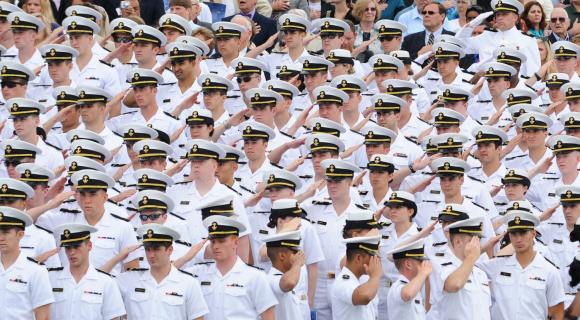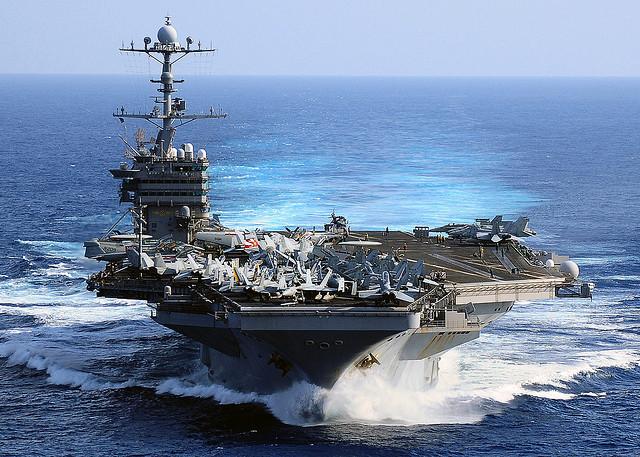Disclaimer:
I have never been in the Navy and I am writing this article without any experience serving in the military. I also admit that not all divisions and units of the navy are the same and so this article may be relevant to some but not to all commands vice divisions.
Question:
Does having an effective leadership style overcome any sentiments of disparity and animosity that an enlisted person may feel toward his/her commanding officer(s)?
Background:
I interviewed an active officer and a retired senior enlisted person; both mentioned that a policy exists in the navy that prevents officers and enlisted from spending one on one time during liberty (free time). Some elements of segregation exists on a navy ship: (1) Officers eat by themselves and officers have larger and separate sleeping quarters than the enlisted men and women, (2) Part of standing duty of a junior enlisted personnel is to serve officers their meals for up to 90 days.
Despite the policy, and the obvious separation during meals and sleeping, there are opportunities for the officers and the enlisted to socialize. One example is something called steel beach picnic day: all crew relax and socialize on deck while out at sea. However, even during this time, an officer I interviewed admitted that there is minimal socialization between the two groups.
Even with these situations, there are effective leaders (officers and senior enlisted) who overcome obstacles with their leadership styles.
 Graduation at the US Naval Academy
Graduation at the US Naval Academy
Testimonials:
When asked about leadership style, the officer said, “I try to get to know the enlisted men and women whom I work with, learn about their families to understand what they’re going through and help them. It’s a two way street when it comes to respecting each other.” He also did admit that depending on the situation, officers would employ different tactics and styles to be effective. Those that do employ a more stern and hierarchical approach, “will result in the enlisted person doing just the bare minimum needed to finish the job, as opposed to going above and beyond their duties,” according to the officer.
The retired senior enlisted person added similar comments as the officer. “My approach is if you work for me, I’ll work for you.” He mentioned that part of his job was to “bridge the gap between the officers and the enlisted,” and address the animosity that younger enlisted may have toward officers due to “their inexperience of being in the system.” In terms of leadership, the retired senior enlisted person did mention a program in which round table forums engaged all ranks to openly share their views and frustrations. This program didn’t last. The retired senior enlisted I interviewed claimed that using “touchy-feely” methods don’t work well in the Navy.
Both interviewees admitted that all their peers do not employ their personal leadership style.
 On an aircraft carrier, there can be as many as five thousand junior enlisted, senior enlisted, and officers on board.
On an aircraft carrier, there can be as many as five thousand junior enlisted, senior enlisted, and officers on board.
Now it’s YOUR turn to share your thoughts:
Do the Navy’s policies and practices enable leaders to be effective? Are some officers and senior enlisted personnel more effective than others despite the hierarchy? Share your experience.
Akshay facilitates workshops on leadership, communication, and teamwork for adults and children with Ziksana Consulting. Read his Behavior Blotter for more on his work and his observations. If you have any ideas for stories, please contact Akshay at [email protected]




